The objectives of Priority Area 9, in accordance with the EUSDR Action Plan published in April 2020, are:
I. Contribution to a higher employment rate in the Danube Region, especially through tackling youth and long-term unemployment
II. Contribution to improved educational outcomes and relevant skills and competences in the Danube Region, focusing on learning outcomes for employability, entrepreneurship, innovation, activecitizenship and well-being
III. Contribution to increased quality and efficiency of education, training and labour market systems
IV. Contribution to ensuring inclusive education and training and promoting inclusive labour markets, equal opportunities and non-discrimination as well as the promotion of civic competences and lifelong learning opportunities for all
V. Contribution to a closer cooperation between educational, training, labour market and research institutions, in particular on transnational, regional and bilateral levels.
Actions of Priority Area 9
Below you can find the actions of Priority Area 9 “People and Skills” of the EU Strategy for the Danube Region as defined in the EUSDR Action Plan. For a good overview on the activities and actions of Priorty Area 9 see also the latest PA9 Folder and PA9 Rolling Work Programme.
.
Labour Market and Social Policies

Action 1
Intensify Cooperation in Labour Market Policies
By intensifying the cooperation between labour market stakeholders’ reforms will be enhanced. The focus will be on active labour market policies, common peer learning/peer counselling in the Danube Region, skills mismatch, labour market information systems, vocational re-education and re-training, dual education as a measure of active labour market policies, transition from school to work.

Action 2
Digitalisation and Innovation in the World of Work
To avoid the digital divide (by age, gender, region, high and low skilled work) on labour markets in the Danube Region there will be a focus on the following activities: reduce the lack of knowledge and skills in IT, exchange and development of common social security standards for platform and crowd work, necessary adaptions of existing labour law in the Danube Region.

Action 3
Integration of Vulnerable Groups into the Labour Market
We define vulnerable groups as persons belonging or perceived to belong to groups that are in a disadvantaged position or that are marginalised. The future activities will focus on: tailor made measures and projects developed with the concerned groups, e.g. case management, subsidies to keep up employment or new models of entrepreneurship for unemployed, social entrepreneurship, or targeted measures for young people to reduce the number of young people not in education, employment or training (NEET).

Action 4
Fighting Poverty and Promoting Social Inclusions for All
Concrete issues of this action are: empowering groups at risk of poverty to get access to the labour market, actions to reduce the number of people at risk of poverty will complement each other and apply on integrated approaches, therefore long term policies are needed, diversification of social services and measures developed together with people at risk of poverty.
Education and Training

Action 5
Concrete issues of this action are:
- Enhancing the anticipation of skills needs and strengthen the labour market relevance of skills
- Strengthening vocational education and training (VET), in particular work-based learning in all its forms
- Developing quality assurance mechanisms and increasing evidence-based policy and practice to monitor and design reforms
- Promoting of teaching at all levels (recruitment, selection and induction; attractiveness of profession, initial education and professional development)

Action 6
Concrete issues of this action are:
- Reducing low achievement in basic skills, covering language, literacy, mathematics, science and digital literacy
- Strengthening transversal and key competences, in particular entrepreneurship and language competences
- Addressing the development of digital competences, including media literacy, at all levels of learning
- Further exploring the potentials of innovative and active pedagogies as well as upgrading educational resources
- Promoting the establishment of platforms of “centres of vocational excellence” to act as catalysts for local business investment, supporting local innovation and smart specialisation strategies by ensuring supply of high quality skilled workers through flexible and timely offer of training

Action 7
Concrete issues of this action are:
- Supporting mobility of learners and teachers as well as partnerships among schools and educational institutions
- Promoting balanced mobility and brain circulation as well as reducing brain drain
- Addressing the transition phase within education and training and from ET to work, inter alia through high quality guidance
- Continuing LLL strategies and promoting adult learning (in view of governance, supply and take up, access, quality) and second chance opportunities
- Fostering transparency, validation and recognition of skills and/or qualifications and implementing EQF and NQFs

Action 8
Concrete issues of this action are:
- Reducing early school leaving
- Addressing the diversity of learners, enhancing access to quality and inclusive education for all, including disadvantaged groups
- Addressing gender gaps in educational training (ET)
- Promoting civic, intercultural and social competences, ownership of democratic values and fundamental rights at all levels of ET, while tackling discrimination, racism and stereotypes
- Enhancing critical thinking, along with cyber and media literacy; promoting sustainable development through ET

